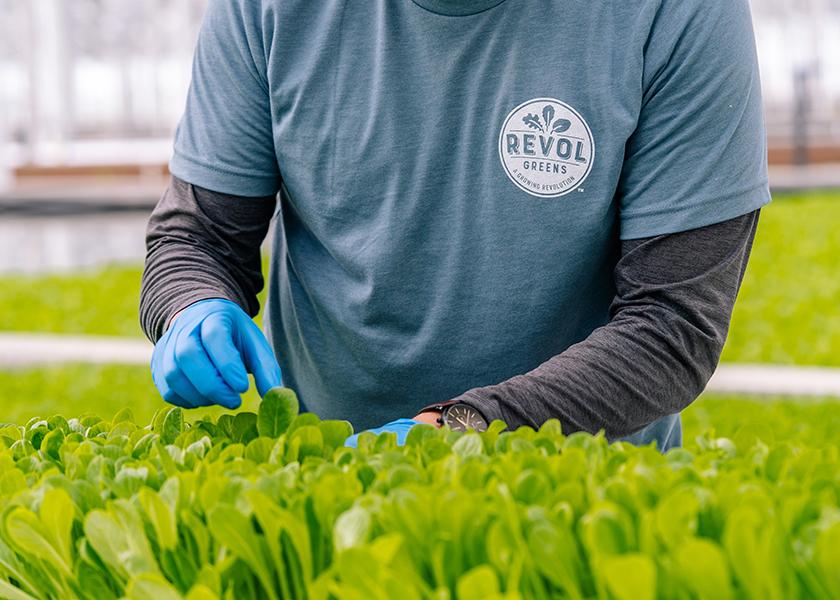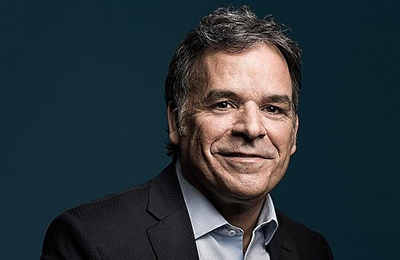Former FDA deputy commissioner offers insight about the food safety evolution ahead

From food safety outbreaks and commodity challenges to pandemic-related production issues and supply bottlenecks, delivering safe, wholesome food from farm to shopping cart has necessitated exceptional tenacity, grit and creative problem-solving from leaders throughout the supply chain.

To say that the U.S. food system has been put through a stress test in the last five years is to put it mildly, and few leaders have experienced these stress points more acutely than Frank Yiannas.
Yiannas served as the FDA’s deputy commissioner for food policy and response from 2018 to 2023, preceded by 30 years in leadership at Walmart and The Walt Disney Co. He led the design and implementation of initiatives such as the FDA’s Fresh Leafy Greens Action Plan, Final Food Traceability Rule, Proposed Agricultural Water Standard and the New Era of Smarter Food Safety initiative.
Yiannas recently made the leap to the private sector, bringing his experience and policy expertise to advise greenhouse leafy-green grower Revol Greens.
The Packer met with Yiannas to discuss his reflections since leaving the FDA six months ago, his priorities in advising Revol Greens on food safety and why he believes that transforming the food system requires more than regulation alone.
Editor's note: Interview edited for length and clarity.
The Packer: There are several food safety initiatives and programs launching in the next six months. What spurred your move to the private sector?
Yiannas: After serving [the] FDA as deputy commissioner for food policy and response for two administrations, I just felt it was time to get back into the private sector. It was an honor and privilege to serve the American people working in the public sector. As you know, I have a long career serving in the public sector, so I thought it was time to get on the other side of the fence.
But let me be clear, it doesn’t matter whether you’re in the private or public sector, at the end of the day, it’s important for us to remember we’re all serving the same boss, and that’s the American consumer.
Absolutely. Coming into your new role, advising Revol Greens on food safety, what do you see as your initial priorities?
Coming out of federal service, I’ve had many companies and organizations asking me to partner with them, but I’ve been selective and intentional, picking only topics that I think are going to be critical to advancing the food system.
We’ve all heard people say that food security is national security, and I got to experience this working at the FDA during the height of the pandemic — probably the biggest test on the food system in over 100 years.
People are waking up to the idea that the food system is under immense pressure, whether it’s the supply chain, labor shortages, the effects of climate change or safety pressures.
When I started talking to [CEO] Michael Wainscott at Revol Greens, I was intrigued with the idea of working with them because it’s going to require innovations and changes to the food system for us to continue to be successful in feeding the soon approaching 10 billion people on the planet. My work will be primarily centered around food safety. First, we’ll take a close look at processes, procedures and infrastructure and see if there [are] opportunities for continued improvement.
The second thing that Michael and I really want to focus on is design. I’ve learned that food safety begins with the design, and we will look for opportunities to continue to refine how the facilities are designed, [which includes] the structure, the equipment that they use and even from the technology leveraged to further strengthen safety, efficiency and sustainability.
The last thing we’re going to do is look at the regulatory framework. We know there are regulations that can affect the food system, and we need to look from a regulatory engagement process and ask, “What does it mean to ensure that the regulations fit our purpose, and how can we work with all stakeholders to determine engagement with regulatory agencies?”
Those sound like exciting topics to wrap your arms around. You mentioned improving processes at Revol Greens. I’m curious, what does that look like for an indoor leafy-green grower?
Fresh produce and leafy greens play a critical role in a healthy diet. There’s a lot consumed daily; the estimates are over 100 million servings safely every day, and it’s generally safe.
But when outbreaks have occurred — and I oversaw and led the outbreak teams at FDA — all too often they’re fresh produce related. In fact, if you look at attribution studies published by the [Centers for Disease Control and Prevention], you’ll see that about 50% of all outbreaks are attributed fresh leafy greens. It’s staggering.
We hate it, but it’s this idea that people say fresh leafy greens are now the new hamburger. So, there’s more that can be done.
Growing in CEA, you can manage and control the climate, water, radically eliminate the potential of adjacent land impacts and animal intrusion. There’s a lot that you can control, but having stated that, oftentimes people believe because a product is grown inside, it’s automatically safer.
In fact, during my tenure at FDA, there was an outbreak with a [controlled environment agriculture] facility that we investigated, and we reported. I made sure that report got published because I wanted the world to know that, while it’s grown indoors, there are things you must do right.
A high standard of care means making sure that people don’t use indoor production as a crutch and say because it’s grown indoor, we don’t have to worry about food safety.
I’m really honored and humbled to be working with Revol Greens. We will always comply with regulations, but we know that regulations are a minimum. We want to go beyond regulatory compliance and establish a standard of care that will ensure that consumers can be sure these products are safe, and that we can serve as a role model for others [in the CEA sector].
What are you most excited about as you look at the months ahead?
Advancing food safety and food production more broadly is just critical. I believe that we’re going to see more changes in food production and agriculture in the next 10 years than we have in the past 30, and these changes are going to require people to lead them.
We don’t want to do things just because this the way it’s always done. We want to understand the science of why things work or don’t work and how can we optimize this evidence, but it will increasingly be technology-enabled.
I hope to serve as a role model for this entire sector to follow. The one thing I’ve learned the hard way, working in retail and at the FDA, is that oftentimes an entire commodity wins and loses together.







